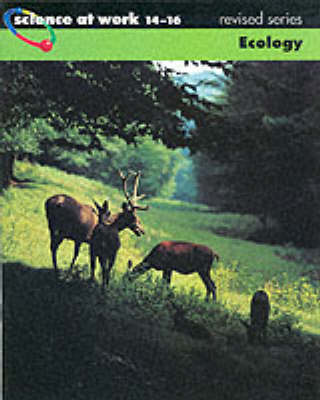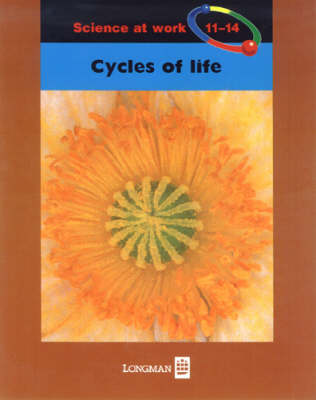Science at Work S.
6 total works
Each topic contains a mixture of information, questions and activities which are illustrated by line drawings to help students see how each experiment should progress.
Each topic contains a mixture of information, questions and activities which are illustrated by line drawings to help students see how each experiment should progress.
Key stage 3
This edition designed for GCSE and TVEI courses is part of a series written to develop students' interest and understanding of science and technology. Although written with the less able student in mind, the modules can be used with students capable of a wide range of GCSE grades by using the extension material in the teacher's guides. The units are self-contained and can be taken in any order to provide a flexible and broad science course. Each unit consists of a students' book and a teacher's guide. The students' book provides information, practical investigations and questions to help students develop their practial skills and approach to problem solving whilst developing their ability to work both independently and as a member of a team. The reading level has been kept as low as possible and has been checked by a language consultant. The teacher's guide contains background details and assistance including course and unit objectives. There are answers to selected questions in the students' book as well as apparatus lists and safety precautions and extension work for the more able pupils in the form of black-line masters which can be duplicated as required.
"Pollution" explains to the student the different types of pollution and how it affects everyday life. The problems of litter and waste are discussed with ideas on how some waste materials can be recycled. The author shows how water can become polluted, describing methods of treatment which can render it fit for drinking. Finally, there is instruction on the harmful chemicals that poison the air and what can be done to control them.
"Pollution" explains to the student the different types of pollution and how it affects everyday life. The problems of litter and waste are discussed with ideas on how some waste materials can be recycled. The author shows how water can become polluted, describing methods of treatment which can render it fit for drinking. Finally, there is instruction on the harmful chemicals that poison the air and what can be done to control them.
Key stage 3
This series is published in two formats, providing flexibility and choice to suit the teacher's needs. There are six modules per year or seperate year-based textbooks containing the six units. Each year's work is also supported by a set of copymasters and a teacher's guide. Each topic in the modules is dealt with in an easy-to-follow, concise manner, making it ideal for all pupils whatever their reading age. Presentation is based around a theme, with simple text and illustrated step-by-step guides to experiments. Trials have shown how efective this style of presentation is with pupils of all abilities. Difficult science is made accessible to less academic students. Extension sheets are also available for all members of the class. The modules cover levels 2 to 6 of the National Curriculum.
The revised editions of "Science at Work" have been prepared following changes to the National Curriculum at 14-16 and to the GCSE Science syllabuses. The materials continue to match both the SEG and ULEAC Modular Science syllabuses. The students' books are clearly set out so that it is immediately obvious to the student which pages involve activities and which involve information. Black-and-white line drawings provide students with clear images of what should be happening in each activity. Colour illustrations provide the clear detail required to reinforce the ideas being discussed.


